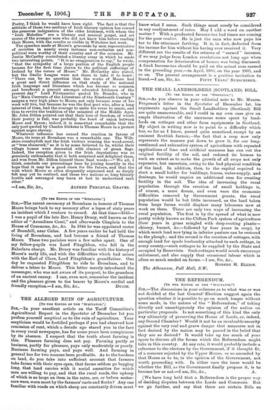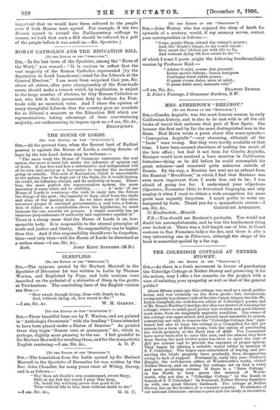THE REFERENDUM.
[To ma EDITOR Or THU " SPECTATOR."] Si,—The discussions in your columns as to what was or was not decided at the last General' Election suggest again the question whether it is possible to go on much longer without some mode, in the nature of the "Referendum," of taking directly and unambiguously the opinion of the nation on particular proposals. Is not something of this kind the only way ultimately of preserving the House of Lords, or, indeed, any Second Chamber? Would it not be an invaluable security against the very real and grave danger that measures not in fact desired by the nation may be passed in the belief that they are so desired ? It would take up too much of your space to discuss all the forms which the Referendum might take in this country. At any rate, it would probably include a reference to the electors by the Government, if it thought fit, of a measure rejected by the Upper House, or so amended by that House as to be, in the opinion of the Government, not worth proceeding with. In either case the issue would be whether the Bill, as the Government finally propose it, is to
become law or not.-'--I am, Sir, &c., A.
[We have long held that a Referendum is the proper way of deciding disputes between the Lords and Commons. But we go further, and say that there are certain Bills so
important that we would have them referred to the people even if both Houses were agreed. For example, if the two Houses agreed to extend the Parliamentary suffrage to women, we bold that such a Bill should be referred to a poll of the people before it was acted on.—En. Spectator.]



























































 Previous page
Previous page